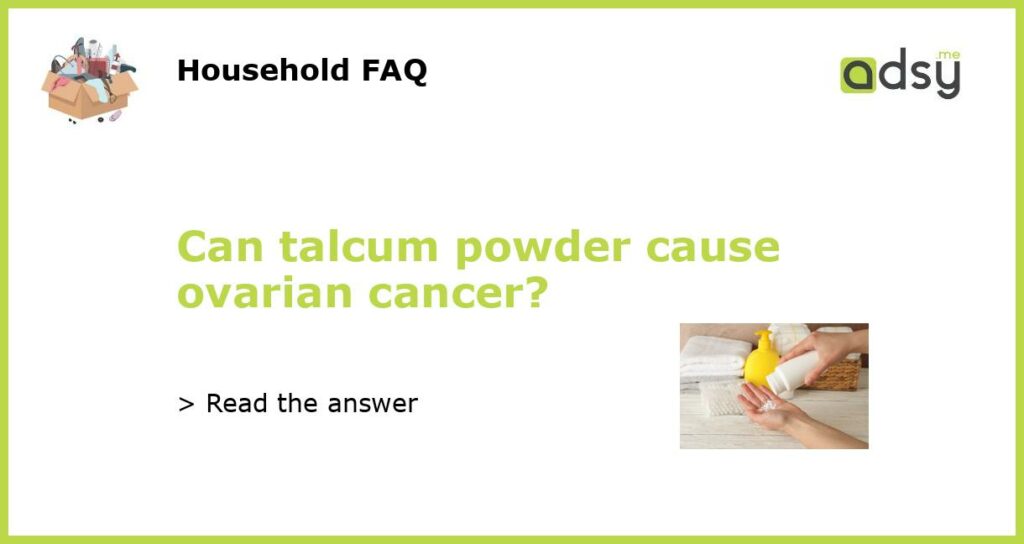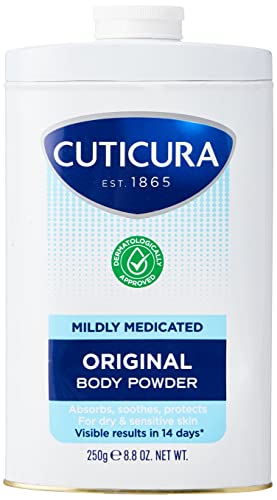What is talcum powder?
Talcum powder is a cosmetic product made from talc, a mineral composed of magnesium, silicon, and oxygen. It is commonly used to absorb moisture and prevent friction on the skin. Talcum powder is widely applied to areas such as the underarms, feet, and genitals to keep them dry and free from irritation.
The link between talcum powder and ovarian cancer
Over the years, there have been concerns about the potential link between talcum powder and ovarian cancer. Some studies have suggested that prolonged and frequent use of talcum powder in the genital area may increase the risk of developing ovarian cancer. The theory is that talc particles may travel through the reproductive system and become embedded in the ovaries, causing inflammation and eventually leading to the development of cancerous cells.
Scientific research and legal battles
Several scientific studies have been conducted to investigate the possible association between talcum powder and ovarian cancer. While some studies have found a small increased risk, others have not found a significant link. The International Agency for Research on Cancer (IARC) has classified talc that contains asbestos as “carcinogenic to humans” based on its association with ovarian cancer. However, most talcum powders available on the market today are asbestos-free.
Despite conflicting evidence, thousands of women have filed lawsuits against Johnson & Johnson, a leading manufacturer of talcum powder products. The company has faced numerous legal battles and has been ordered to pay substantial settlements and damages to women who claim that their long-term use of talcum powder caused their ovarian cancer. These legal cases have raised public awareness and sparked ongoing debates about the safety of talcum powder.
What do experts say?
Experts are divided on the topic of talcum powder and ovarian cancer. Some argue that the evidence is inconclusive and more research is needed to establish a definitive link. Others believe that the potential risk is significant enough to warrant caution and advise against using talcum powder in the genital area, especially for women with a family history of ovarian cancer.
The American Cancer Society states that while there is some potential risk, the overall increase in risk is considered to be small. They recommend that individuals who are concerned about the potential risks of talcum powder should consider using alternatives, such as cornstarch-based powders.
Taking precautions
Regardless of the ongoing debate, it is essential for individuals to make informed choices based on their own comfort level and risk tolerance. If you are worried about the potential link between talcum powder and ovarian cancer, here are some precautions you can take:
- Read product labels and choose talcum powders that are labeled as asbestos-free.
- Avoid using talcum powder in the genital area, especially if you have a family history of ovarian cancer.
- Consider using alternative products, such as cornstarch-based powders, to absorb moisture.
- Discuss your concerns with your healthcare provider and follow their guidance.
- Stay informed about the latest research and updates regarding talcum powder and ovarian cancer.
In conclusion, the link between talcum powder and ovarian cancer remains a topic of debate and ongoing research. While some studies suggest a potential association, others do not find a significant link. It is important for individuals to consider the available evidence and make informed choices regarding the use of talcum powder. If you have concerns about the potential risks, it is recommended to speak with your healthcare provider and explore alternative options.






